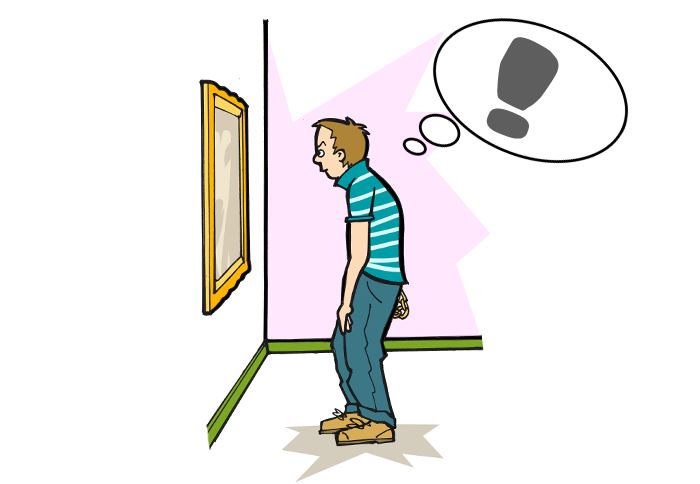Partizipien anstelle von adverbialen Nebensätzen
Partizipien anstelle von adverbialen Nebensätzen
Du kannst mit Partizipien adverbiale Nebensätze der Zeit und des Grundes ersetzen. Das geht allerdings nur, wenn das Subjekt (Wer oder was?) des Hauptsatzes auch das Subjekt des adverbialen Nebensatzes ist.
Sieh dir zunächst die Beispielsätze an:
| Satz mit adverbialen Nebensatz | Satz mit Partizip |
|---|---|
| When I arrived in New York,I started looking for a hotel. | Arriving in New York, I started looking for a hotel. |
| Adam often goes to art museums because he loves art. | Loving art, Adam often goes to art museums. |

Sätze mit Partizipien werden meistens nur im schriftlichen Englisch verwendet. Beim Sprechen benutzt man eher adverbiale Nebensätze.
Present participle oder past participle?
Ein present participle ersetzt einen adverbialen Nebensatz im Aktiv:
| Aktivsatz mit adverbialen Nebensatz | Satz mit present participle |
|---|---|
| When James washed the dishes, he listened to music. | Washing the dishes, James listened to music. |
| As Emma was very tired, she went to bed early. | Being very tired, Emma went to bed early. |
Ein past participle ersetzt einen adverbialen Nebensatz im Passiv:
| Passivsatz mit adverbialen Nebensatz | Satz mit past participle |
|---|---|
| When James was asked to turn down the music, he turned it up even louder. | Asked to turn down the music, James turned it up even louder. |
| The bread tastes very dry because it was bought a week ago. | Bought a week ago, the bread tastes very dry. |
Die Partizipien
Das present participle ist die ing-Form des Verbs:
speaking (sprechend)
eating (essend)
Das past participle ist die 3. Form des Verbs:
written (geschrieben)
sold (verkauft)

Das perfect participle
Wenn du einen adverbialen Nebensatz verkürzen und sagen möchtest, dass eine Handlung vor einer anderen Handlung geschehen ist, benutzt du das perfect participle.
Das perfect participle wird gebildet aus:
having+ past participle des Verbs.
- having asked
- having eaten
- having done
After she had finished school,Laura wanted to travel the world.
→ Having finished school,Laura wanted to travel the world.Because Theo wrote a lot of covering letters,he found a job quickly.
→ Having written a lot of covering letters,Theo found a job quickly.
Das perfect participle im Passiv
Das perfect participle gibt es auch im Passiv. Es ersetzt adverbiale Nebensätze, die im Passiv stehen.
Du bildest das perfect participle im Passiv so:
having + been + past participle des Verbs
- having been eaten
- having been told
- having been worn
- After he had been rescued,Henry was taken to hospital.
→ Having been rescued,Henry was taken to hospital. - After they had been greeted by their teacher,the students entered the classroom.
→ Having been greeted by their teacher,the students entered the classroom.

kapiert.de passt zu deinem Schulbuch!
Buchreihen Englisch mein Schulbuch suchen



